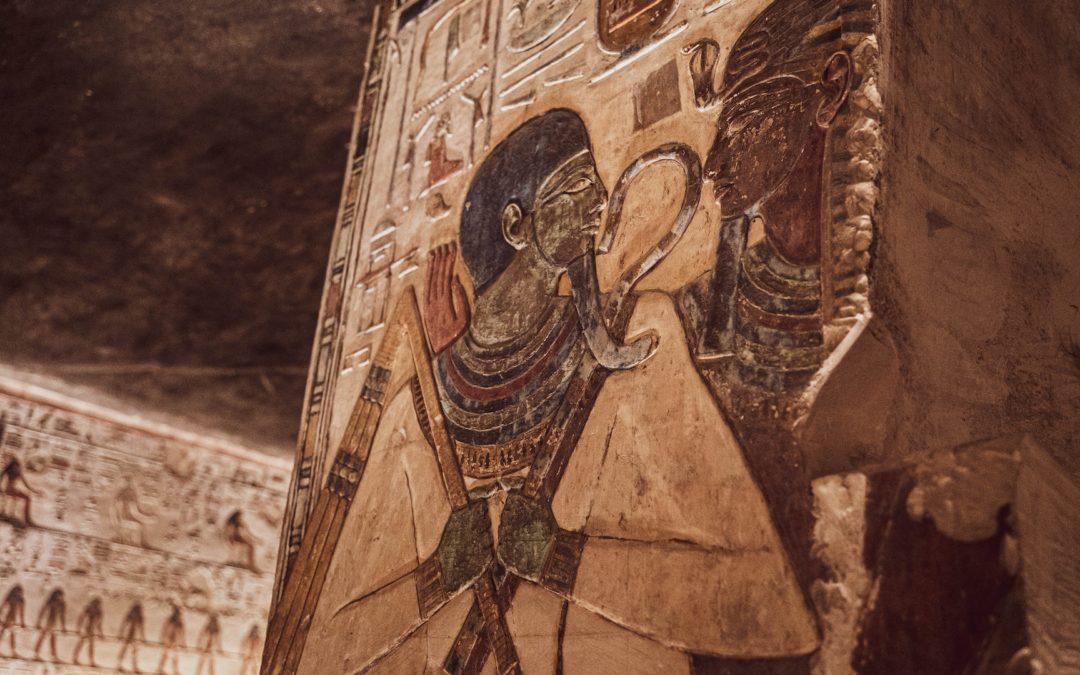Countries today use more than just military or economic force to shape the global landscape. They increasingly rely on soft power – using attraction and influence to win support, rather than force or payment. Coined by Joseph Nye, this term refers to a nation’s ability to make others want what it wants by showcasing its culture, values, and foreign policies in ways that appeal to people worldwide.
Whether through film, music, education, or diplomacy, nations project their identities in ways that build positive perceptions. A country that leads in cultural exports or humanitarian efforts often finds itself with a favorable global image. It’s about persuading others to follow your lead because they admire your values and way of life, not because you make demands.
This article explores 25 clear examples of how soft power is used in international relations. From Hollywood’s global influence to cultural exchange programs, these examples highlight how countries build goodwill, strengthen alliances, and shape global opinions – all without using force.
The Concept of Soft Power Explained
Soft power is a country’s ability to influence others through attraction and persuasion rather than using force or money. This concept was introduced by political scientist Joseph Nye. Unlike hard power, which relies on military strength or economic pressure, soft power works through culture, values, and policies that inspire admiration and trust.
Nations that excel in soft power don’t impose their will. Instead, they build positive relationships by promoting shared ideals and mutual understanding. This can be seen in areas like diplomacy, cultural exchanges, education, and global media. By showcasing their strengths, these countries create a favorable image that others respect and want to follow.
Soft power is essential in today’s interconnected world. It helps nations foster cooperation, resolve conflicts peacefully, and strengthen their global standing. When a country is admired, it’s easier to form alliances and reach foreign policy goals without needing force or financial incentives. Countries that successfully use soft power can build lasting, positive influence on the international stage.
In a world where military might isn’t always the best solution, soft power gives nations a powerful tool for shaping global perceptions and achieving their objectives.
Examples of Soft Power in International Relations
1. Cultural Exchange Programs
Cultural exchange programs are an effective way for countries to build deeper connections with others by fostering mutual understanding. These initiatives offer participants the chance to experience another culture firsthand, often through educational or professional placements. Japan’s JET Program, for instance, brings foreign teachers to work in Japanese schools. These teachers return home with a first-hand appreciation of Japanese culture, often acting as informal ambassadors. For the host country, such initiatives create lasting goodwill and deepen international ties. If you work in international education or diplomacy, exchange programs can be a strategy to enhance cross-cultural relationships, promote your country’s values, and leave a long-lasting positive impression on participants.
2. Hollywood Movies
Hollywood’s influence extends far beyond entertainment. The global popularity of American films is one of the United States’ most potent forms of soft power. Movies don’t just tell stories – they convey values, lifestyles, and ideologies. Themes such as freedom, individualism, and democracy are often woven into plots, subtly promoting these ideas to audiences worldwide. Whether you work in media, advertising, or education, understanding the cultural impact of film can help you leverage similar narratives to shape how your message is perceived internationally. Hollywood’s ability to reach millions with just one blockbuster demonstrates how storytelling can influence cultural perspectives and shape public opinion on a global scale.
3. Olympic Games
Hosting the Olympics offers a country a unique chance to showcase itself on the world stage. It’s about much more than sports—it’s an opportunity to display culture, hospitality, and national progress. The 2008 Beijing Olympics, for example, allowed China to project an image of modernity and efficiency to a global audience. Every aspect, from infrastructure to the opening ceremonies, was designed to leave a lasting impression. For businesses and governments alike, hosting or participating in such global events can be a strategic move to improve international reputation and attract foreign investments. It’s a prime example of how public relations can be elevated through large-scale cultural exhibitions.
4. Foreign Aid and Development Assistance
Providing foreign aid isn’t just about helping those in need – it’s also a way to foster strong relationships and build a positive international reputation. Norway is a leader in this area, offering generous development aid to countries around the world. This generosity not only benefits the recipients but also strengthens Norway’s position as a compassionate and responsible global partner. If you’re in international development or policy-making, investing in foreign aid can help you build long-term alliances and positive relationships with other nations, laying the groundwork for future diplomatic or economic cooperation.
5. Educational Institutions
World-renowned universities like Harvard, Oxford, and the Sorbonne don’t just educate – they export soft power. Students from every corner of the globe compete to study at these prestigious institutions, and when they return to their home countries, they often carry with them a deep appreciation for the culture of their host country. These students often rise to positions of influence, taking their positive experiences with them into their professional lives. For countries looking to enhance their soft power, investing in education and offering scholarships to international students is a proven method to cultivate future leaders who feel connected to your culture and values.
6. Cuisine and Gastronomy
Food is more than just sustenance; it’s a window into a country’s culture. Italian cuisine, with its pizza, pasta, and regional specialties, is beloved around the world and has become an essential part of Italy’s cultural identity. When people enjoy a particular nation’s cuisine, they often develop a deeper interest in that country’s traditions and way of life. For countries or businesses in the hospitality industry, promoting national cuisine can be a powerful way to build a positive image abroad. Hosting food festivals or creating international culinary experiences allows people to “taste” a culture and fosters a sense of connection and goodwill.
7. Music and Entertainment
South Korea’s global success with K-pop has skyrocketed its cultural influence across the world. Bands like BTS have millions of fans worldwide, but their influence goes beyond the music itself. K-pop fans often engage with Korean culture, language, and fashion, sparking an interest in the nation itself. This global fascination with Korean entertainment has opened doors for tourism, business, and even diplomatic exchanges. If you’re in media, entertainment, or cultural promotion, music is a proven vehicle to connect with global audiences and build cultural bridges.
8. Global Sporting Events
Sporting events like the FIFA World Cup aren’t just about competition; they’re platforms for cultural diplomacy. When Brazil hosted the World Cup in 2014, it wasn’t just showcasing its football talent, but also its vibrant culture and warm hospitality. These events help countries connect with international audiences on an emotional level, creating positive associations with the host nation. In a world where relationships and image matter, participating in or hosting global sporting events can be a valuable soft power strategy to enhance a country’s reputation and foster international goodwill.
9. Language Promotion
The promotion of a country’s language can be a gateway to deeper cultural influence. Institutions like the Alliance Française and the Goethe-Institut help spread the French and German languages around the world, but these programs do more than just teach grammar – they offer a way to engage with the culture, values, and history of the countries they represent. Language is deeply tied to identity, and as more people learn and use a language, they naturally develop an affinity for the culture behind it. If you’re working in cultural promotion, investing in language programs is a long-term strategy to cultivate international goodwill and connection.
10. International Broadcasting
Media plays a crucial role in shaping international narratives, and outlets like the BBC World Service or Russia’s RT are prime examples of how broadcasting can be used as a soft power tool. These networks present news with a particular national perspective, reaching millions globally and influencing how people perceive different countries and events. The BBC, for example, is respected for its journalistic integrity and helps spread British viewpoints worldwide. For anyone in journalism or media, understanding the influence of international broadcasting is key. It’s not just about reporting facts, but shaping global conversations and how a nation’s role in the world is perceived.
11. Cultural Festivals
Cultural festivals like India’s Diwali or Brazil’s Carnival are not just celebrations – they’re powerful tools for showcasing a nation’s traditions, beliefs, and heritage. These events draw millions of international tourists and media attention. When people experience a country’s culture firsthand, they leave with a deeper appreciation of its values and way of life. For instance, Brazil’s Carnival highlights its vibrant music, dance, and art, boosting Brazil’s image as a country of joy and creativity. If you’re in event management or tourism, organizing such festivals can play a pivotal role in improving international perception and attracting long-term tourism investment.
12. Fashion and Design
Fashion and design carry immense cultural weight. French fashion houses like Chanel and Dior have long been seen as symbols of elegance and luxury, promoting not just clothing but the entire cultural identity of France. Fashion influences lifestyle, identity, and even political perceptions. When people around the world admire French fashion, they also admire the values associated with it – sophistication, creativity, and innovation. If you’re in the fashion industry, understanding how global trends impact cultural perceptions can help you leverage your designs to build a stronger international image for your brand or country.
13. Tourism Campaigns
Countries like Thailand have turned to well-crafted tourism campaigns to share their cultural heritage, natural beauty, and warm hospitality with the world. These campaigns don’t just invite visitors – they carefully craft a national story that attracts people looking for adventure, peace, or cultural immersion. When travelers return with great stories, it elevates a country’s image internationally. Positive tourism experiences often translate into repeat visits and a stronger economy, which in turn builds goodwill. In the tourism or hospitality sector, investing in campaigns that highlight cultural and natural assets can have long-term benefits in improving a nation’s soft power.
14. Peaceful Diplomacy
Countries that promote peaceful diplomacy, like Switzerland, often gain respect on the global stage. Switzerland has long played the role of neutral mediator in international conflicts, providing a safe space for negotiations and peace talks. This neutrality strengthens Switzerland’s image as a fair and trusted nation, even in highly tense geopolitical situations. For diplomats and policymakers, working toward peaceful resolutions and acting as mediators in conflicts can enhance a nation’s soft power and build long-lasting international trust.
15. Technology and Innovation
Leading in technological innovation is a key element of soft power. Japan, with its cutting-edge robotics and advanced technology, represents a nation synonymous with progress and forward-thinking. This attracts talent, business partnerships, and admiration from around the world. Innovation signals strength and competence, making other countries more eager to collaborate and invest. If you’re involved in tech or R&D, positioning your country as a leader in innovation can have a significant impact on its international standing, attracting both talent and investment.
16. Art and Exhibitions
Art can break down cultural barriers and foster deeper understanding between nations. Exhibiting ancient Chinese art in foreign museums or hosting traveling exhibitions of Egyptian artifacts provides an opportunity to showcase a nation’s rich cultural history. This form of cultural diplomacy allows people from different countries to appreciate and respect each other’s heritage. For those in the arts or museum sectors, organizing international art exhibitions can be an excellent way to build bridges and enhance cultural appreciation globally.
17. Volunteer Programs
Volunteer programs, such as the U.S. Peace Corps, are excellent examples of soft power in action. Volunteers work in developing nations, offering education, healthcare, and development assistance, building goodwill and positive relations with local communities. These programs create personal connections between the volunteers and the host country, making them ambassadors for their home nation. If you work in international development or non-profits, volunteer programs can serve as a way to strengthen ties, promote humanitarian values, and leave a lasting positive impact.
18. Global Health Initiatives
Countries that take a leading role in global health often enhance their international reputation. Sweden, for example, has invested heavily in global health initiatives, particularly in developing nations, offering aid and expertise. These programs show compassion and responsibility, boosting the image of a country as a caring and forward-thinking global player. If you work in healthcare or international policy, supporting global health initiatives is a powerful way to improve a nation’s standing and contribute to global well-being.
19. Television Shows
Television series can reach far beyond their original borders, shaping global perceptions of a country. South Korea’s K-dramas, for instance, have become a cultural sensation, introducing international audiences to Korean language, traditions, and values. As people watch these shows, they begin to associate Korea with creativity, warmth, and cultural depth. For those in media or cultural industries, television is a powerful medium to promote national culture and values globally, influencing how a country is perceived abroad.
20. Literature and Publications
Literature has long been a bridge between cultures. British authors like Shakespeare have left a lasting legacy, influencing global thought and culture for centuries. Contemporary authors continue to spread British cultural and intellectual influence. When people read the literature of a particular country, they gain insight into its history, values, and worldviews. This can deeply shape how they perceive that country and its people. For writers, publishers, and educators, promoting national literature is a strategic way to export culture and enhance international soft power.
21. Student Scholarships
Scholarships for international students have become a powerful way for countries to build connections. Australia, for example, brings thousands of students from around the world through its scholarship programs, giving them the opportunity to study and live in Australia. These students often return home with a deep appreciation for the country, acting as informal ambassadors and fostering diplomatic and cultural bonds. For universities and governments, offering scholarships can cultivate long-term international relationships, enhance cultural exchange, and boost soft power.
22. Global Business Brands
Global brands like Sweden’s IKEA or America’s Apple are more than just companies – they are cultural ambassadors. These businesses reflect the values of their home countries, such as innovation, quality, and sustainability. When people across the world buy IKEA furniture, they are also buying into the Swedish ideals of simplicity and functionality. Similarly, Apple’s sleek products promote the idea of American innovation. If you work in international business, your brand can play a pivotal role in promoting not only your company but your country’s image and values worldwide.
23. Cultural Institutes
Cultural institutes, such as the British Council, provide a platform for nations to promote their language, art, and education abroad. These institutions create a space for cultural exchange, helping people from other countries experience the richness of a nation’s heritage. They also serve as hubs for collaboration and dialogue. By engaging with foreign audiences, cultural institutes can build strong international relationships and foster mutual understanding. For policymakers or cultural promoters, investing in such institutes is an effective way to project a positive image globally.
24. Religious Diplomacy
Religious diplomacy uses faith-based connections to build international influence. Saudi Arabia, for example, leverages its role as the guardian of Islam’s holy sites to build relationships with Muslim-majority countries. This strengthens its influence in both political and cultural arenas within the Islamic world. Countries that emphasize religious diplomacy often gain respect and authority from communities that share the same faith. If you work in international diplomacy, understanding religious dynamics can help you navigate and strengthen these bonds for peaceful and productive relations.
25. Film Festivals
Hosting major film festivals like France’s Cannes Film Festival is not just about cinema – it’s a cultural showcase. These events bring international attention to the country’s art, values, and creativity. Cannes, for example, boosts France’s reputation as a cultural hub, positioning it at the forefront of global artistic conversation. For those in the film or cultural industries, hosting or participating in film festivals can significantly boost a country’s soft power, drawing international talent and attention to its cultural leadership.
Why and How Countries Use Soft Power
Countries use soft power to influence global opinions and build positive relationships without relying on force or coercion. Instead of pushing others to act, soft power pulls them in by appealing to their interests and values. It’s about making your country attractive to others, so they naturally want to align with you.
Nations use soft power for many reasons. They may want to strengthen diplomatic ties, attract tourism, encourage foreign investments, or gain support for international policies. Soft power also helps countries resolve conflicts, promote peace, and build alliances based on mutual trust. For smaller nations, it can be a way to have a voice on the world stage without needing military or economic dominance.
Countries apply soft power through various channels. Cultural exports like movies, music, and art play a significant role. So do educational exchanges, humanitarian aid, and peaceful diplomacy. Even global businesses and renowned universities contribute to a nation’s soft power by projecting values like innovation, quality, and leadership.
The Impact of Soft Power on Global Politics
Soft power plays a pivotal role in shaping global politics by influencing international perceptions and forging alliances. Unlike hard power, which relies on military and economic strength, soft power operates through attraction and persuasion. This makes it a versatile tool for countries seeking to enhance their global standing without direct confrontation.
In the realm of global politics, soft power can impact diplomatic relations, international trade, and global governance. For instance, nations that excel in soft power can attract foreign investment and tourism, as seen in countries like France and Italy. Additionally, soft power can facilitate diplomatic negotiations by creating a favorable environment for dialogue and cooperation. Countries with strong cultural and ideological appeal often find it easier to rally support for their initiatives in international forums such as the United Nations and the World Trade Organization.
Moreover, soft power can serve as a counterbalance to the influence of more dominant powers. Smaller nations can leverage their cultural assets and values to gain a voice on the global stage, challenging the traditional power dynamics. By understanding its impact on global politics, governments and policymakers can better harness soft power to achieve their foreign policy objectives and foster international cooperation.
In conclusion soft power is an indispensable component of international relations, offering nations a strategic advantage in a rapidly changing world.
The Role of Media and Culture in Soft Power
Media and culture are vital elements of soft power in international relations. Nations use these tools to craft and project their image globally. Movies, music, and television shows are powerful conduits of cultural values. They reach millions, shaping perceptions and understanding. Hollywood, for instance, has played a significant role in promoting American values and lifestyle across the world. This influence can sway public opinion and governments alike.
Social media platforms have further amplified this reach. They allow for rapid dissemination of cultural content. This makes it easier for nations to engage with international audiences. Platforms like Twitter and YouTube enable countries to tell their stories directly. They bypass traditional media filters. However, the impact is not always positive. Some content may reinforce stereotypes or create misunderstandings. The role of media and culture in soft power is complex. It’s an ever-evolving landscape that requires careful navigation.
Soft Power and International Education
Education is another significant avenue of soft power. Countries with prestigious universities attract students from around the world. These students often return home with a favorable view of their host country. They become informal ambassadors, promoting the culture and values they experienced. This educational exchange fosters a deeper understanding between nations.
Scholarship programs are a strategic tool in this context. They offer opportunities to students from developing countries. This creates goodwill and strengthens diplomatic ties. English language programs are particularly popular. They help spread cultural and linguistic knowledge. The impact of international education extends beyond individual students. It builds networks of influence and fosters long-term relationships.
However, there are challenges. High tuition fees can limit access to these educational opportunities. This may hinder the effectiveness of education as a soft power tool. Additionally, geopolitical tensions can impact student mobility. Despite these challenges, education remains a key component of soft power strategies. It helps build bridges and promote mutual respect among nations.
The Difference Between Soft Power and Hard Power
In international relations, the distinction between soft power and hard power is key. Hard power refers to a country’s ability to influence others through force, threats, or payments. This includes military strength, economic sanctions, and coercive diplomacy. It’s about making others do what you want by applying pressure, whether through physical force or financial leverage.
Soft power, on the other hand, is all about attraction. Instead of relying on force or money, it persuades others to follow your lead because they admire your culture, values, or policies. It’s about shaping preferences and building long-lasting relationships based on mutual respect. Soft power flows from diplomacy, cultural exchanges, education, and shared ideals.
While hard power might bring quick results, its effects can be short-lived and often create resistance. Soft power takes more time but tends to foster deeper, more sustainable connections. Nations that master both soft and hard power—using them wisely based on the situation – are often the most influential in shaping global affairs.
Ultimately, while hard power demands action, soft power invites cooperation. In a world where cooperation is becoming increasingly important, understanding both is essential for effective diplomacy.
The Most Popular on BitGlint

35 Benefits of Studying History
The study of history provides us with a wealth of knowledge about the past and enables us to understand the present...

100+ Things That Are Cold
Cold is something most people understand the moment they feel it. You step outside on a freezing morning. You grab a...

30 Benefits of Studying Psychology
Psychology is a fascinating field that explores the human mind and behavior. Studying psychology can provide you with...

100 Non-Digital Things List
In everyday life, there are still hundreds of objects, tools, and materials that exist completely outside the digital...

100+ Folklore Examples, Types, and Meanings
Folklore connects people through shared stories, beliefs, and traditions. In this article, you will find over 100...

Top 50 Essential Train Travel Tips
Train travel is one of the most enjoyable and fascinating ways to explore a new destination. From scenic routes to...

30 Benefits of Studying Nursing: A Rewarding Career Path
Nursing is a highly respected and in-demand profession that offers a wide range of benefits to those who choose to...
Get Inspired with BitGlint
The Latest
30 Emotional Pleasure Examples & Meaning
Emotional pleasure comes from experiences that satisfy the heart, not just the senses. It’s the feeling you get when you're deeply moved, reassured, or connected to something meaningful. While physical pleasures are easy to define - like a good meal or a warm bath -...

20 The Most Important Interpersonal Skills
In this article we will focus on the 20 most important interpersonal skills, including active listening, empathy, conflict resolution, and effective communication, that can help individuals improve their interpersonal relationships both personally and professionally....
20 Essential Hard Skills for Nurses
As healthcare professionals who play a critical role in patient care, nurses are required to possess a wide range of skills to perform their duties effectively. While some of these skills are innate, many can be learned and honed over time through education and...
Top 30 Disadvantages of Social Media: A Comprehensive Guide
Social media has changed the way we live. It helps us stay connected, share ideas, and even build businesses. Platforms like Facebook, Instagram, TikTok, and Twitter make it easy to interact with others and stay updated on news and trends. But while there are many...

